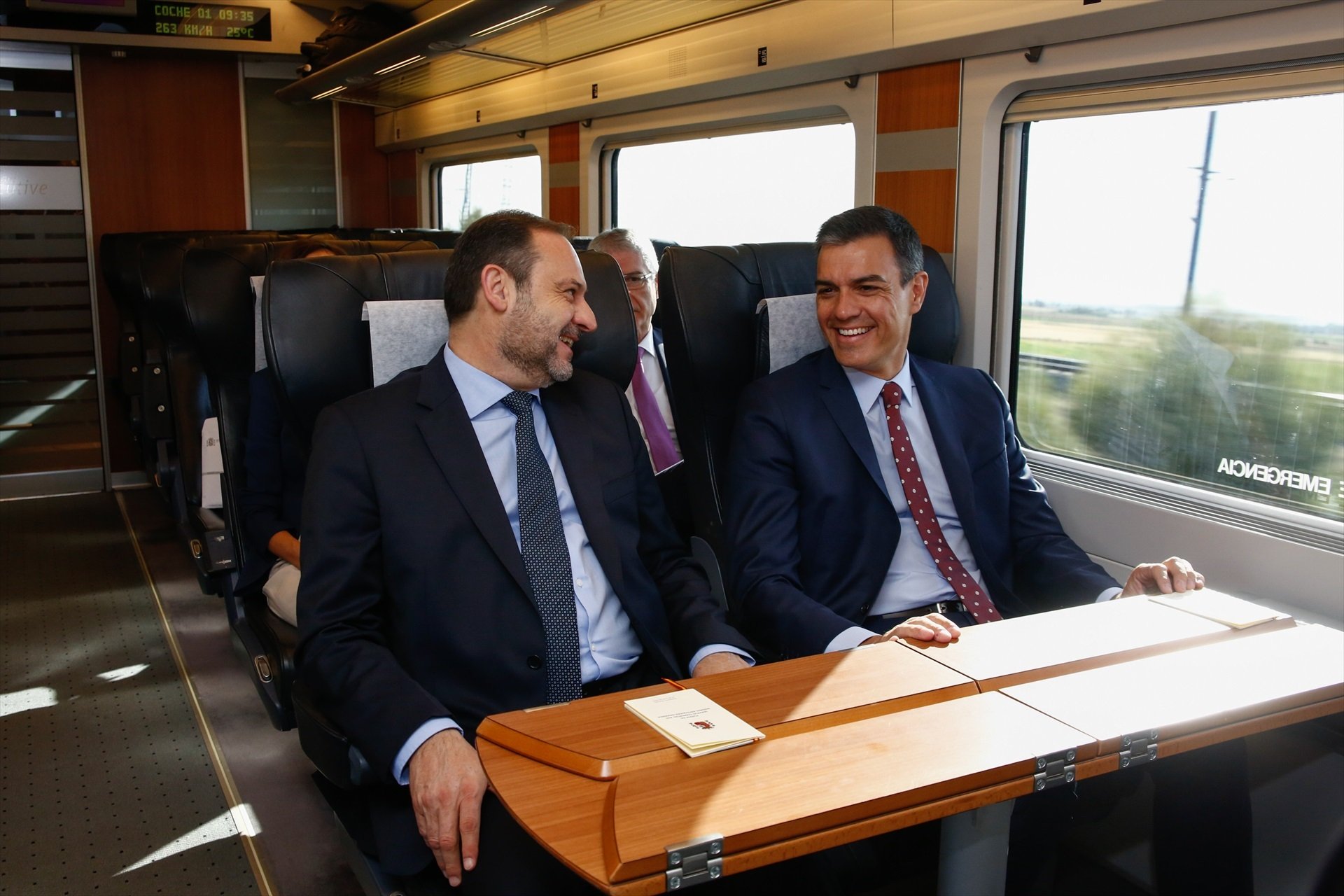This Monday's announcement by the Spanish government that it plans to invest 16 billion euros in the development of the Atlantic rail corridor was a bucket of cold water for Catalonia. While businesspeople are pushing for the acceleration of the works on the Mediterranean corridor - with countless delays at various points, such as the connection between Martorell and Castellbisbal in Catalonia, although that will soon be resolved; or in the Alicante town of La Encina - and waiting for the planned investments to be carried out, the Spanish state has set out a plan to disburse 16 billion euros to promote the Atlantic transport corridor with a detailed action plan of intermodal logistics, which includes the communities of Asturias, Castilla y León, Extremadura, Andalusia, the Canary Islands, Galicia, the Basque Country, Navarra, Castilla-La Mancha, the Community of Madrid and Aragon.
In 2013, the European Union updated its rail freight priorities map and placed both the Mediterranean and Atlantic corridors on it, offering a clear message to leave behind the radial map of Spanish transport - centred on Madrid - and develop the peripheral arteries that are also key continental routes. The EU regulations stipulate that these routes must be up and running by 2030, and compliance is mandatory. But delays have been a constant. Now, the announcement by the Spanish ministry of Transport, Mobility and Urban Agenda implies that the construction of the Atlantic corridor, according to the central government itself, will from here on be carried out at the same time as the work on the Mediterranean corridor, with the latter to be completed - they assure - in 2026. After asserting the will to undertake a new corridor even though the Mediterranean route is not completed, the ministry's secretary of state, David Lucas, defended himself by saying that for the Spanish executive "the Mediterranean is as important as the Atlantic" and argued that, for this year, both corridors have a similar budget (1,695 million for the Mediterranean corridor and 1,648 for the Atlantic).
Adding to the unease of the territories which are on the Mediterranean corridor's still not fully realized route is the fact that, after so many years of delays and non-compliance with EU commitments due to late funding transfers in this matter, now the Spanish government turns around and asserts its ability to complete two projects at the same time - with the Mediterranean project unfinished, many delays having built up, and the line's importance for the economic competitiveness of the whole eastern seaboard of the Spanish state. In addition, in contrast with the gaps that still remain in the Mediterranean corridor, the Atlantic route already starts with the city of Hendaye, at the French border, already connected to the southern terminus - Lisbon - via Madrid.
The figures
Two weeks ago, the Basque MP, Aitor Esteban, asked Spanish prime minister Pedro Sánchez about the Atlantic corridor and demanded that he comply with the rail connection of the Atlantic axis. Esteban criticised Sánchez for his statement in the framework of the Spanish-French summit in Barcelona that agreement had been reached with France to boost the Atlantic corridor by 2030. On the other hand, a French report on the same subject delayed the development of this infrastructure until 2042. Less than two weeks later, the Spanish executive has announced that it will invest 16 billion euros to boost construction work along this axis. The total investment planned for the Atlantic corridor adds up to more than 49.4 billion euros, of which the Spanish government maintains that 33.3 billion have already been executed. And this is where the grievance becomes accentuated. In the case of the Mediterranean corridor, the ministry of Transport, Mobility and Urban Agenda explained that it had mobilized 4.4 billion euros to develop it in the last four years, an element to which must be added the minimal degree of execution of the investments in Catalonia and the Valencian Country, in contrast to other communities where the Atlantic Corridor will be built (which, despite its name, will pass through Madrid). Of the 4.4 billion euros, not quite 2 billion have been executed. Thus, the figure announced for the Atlantic corridor multiplies by four the investment envisaged for the Mediterranean corridor in the last four years and multiplies by eight the amount actually executed in the latter corridor.
As well as this, some voices denounce what is happening as an attempt to turn the Mediterranean corridor into a low-cost infrastructure. One of the conflicting points is to do with the Martorell-Castellbisbal connection just south-west of Barcelona city, which initially was due to be completed in 2020. Ramon Tremosa, Junts party politician, explained in his book Catalunya, potència logística natural (Pòrtic Edicions, 2020) that "a third track is being built on the Rodalies line, a solution he described as a 'patch'". This implies that there will be no new exclusive goods train tracks - as required by the European regulations, under which the corridor is defined as a double European-wide train track - and Tremosa states that it will mean that freight trains will have to run on the same tracks as the Baix Llobregat commuter trains - a situation that does not occur "in any other country", since there are no sidings planned either - a fact that could mean "many limitations" and "very high wear and tear" of these tracks.

